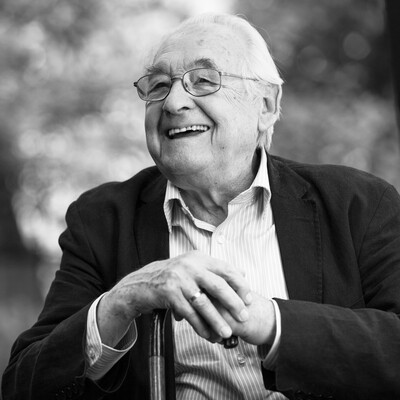Andrzej Wajda,
Departure of the great Polish filmmaker
PostED ON OCTOBER 10, 2016 AT 10AM

To understand the impact on the cinema world of Andrzej Wajda, who died on Sunday at age 90, one needs to go thirty-five years back in time. We recall how Man of Iron was the "surprise film" of the 1981 Cannes Film Festival, arriving there clandestinely, thwarting the traps of censorship, and finally, winning the Palme D'or. The Solidarity union challenged Poland's Jaruzelski and soon declared a state of emergency... The filmmaker defied the Communists in power.
By age 55, Andrzej Wajda was the greatest Polish director - since Polanski and Skolimowski had chosen exile. He was a child of history, with a capital H. A resistance member at 16, he was an orphan, after the Soviet police in Katyn assassinated his father. Wajda would eventually devote a film to the event in 2007. Trained at the famous Lodz Film School (Lodz is pronounced "woudg" if you want to look like you know what you're talking about), he gained public recognition with Ashes and Diamonds (1958), a chronicle of post-war fratricide (the bloody conflict between communists and nationalists). Wajda was then a young neo-expressionist filmmaker, seeking to give his images a symbolic and poetic power.
At that time, on a whim, after directing fifty or so films, he became an elegiac chronicler (The Birch Wood, 1970 The Maids of Wilko, 1979), a handheld film reporter of his angry country (from Man of Marble, 1977 to Walesa: Man of Hope, 2013, based on Nobel laureate Lech Walesa)... It was during Jaruzelski's dictatorship that Wajda directed his most famous film in France: Danton (1983), starring Gérard Depardieu, the story of a revolution that would eventually victimize its own children. Wajda had had experience of these excesses, this violence during his lifetime. With his passing, certain memories of the twentieth century are lost with him.
Adrien Dufourquet

